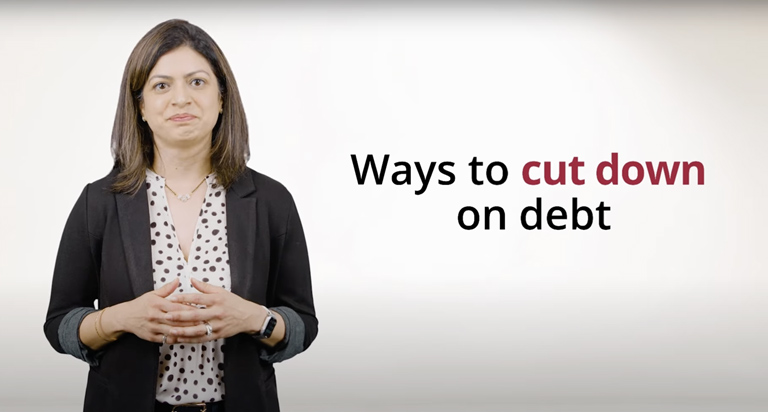Practical Tips for Negotiating and Reducing Debt

Anúncios
Debt can be a significant source of stress; however, understanding debt negotiation can serve as an effective tool for regaining financial control.
This article outlines the fundamentals of debt negotiation, examining its advantages and how it can help alleviate financial burdens. It provides guidance on the preparation process for negotiation, including the importance of gathering relevant information and setting realistic goals.
Readers will acquire effective communication strategies and negotiation techniques that can facilitate debt reduction and establish a manageable repayment plan. By the conclusion of this article, individuals will possess practical tips to address debt effectively and pave the way toward financial freedom.
Understanding Debt Negotiation
Understanding debt negotiation is crucial for individuals facing significant financial challenges. This process entails engaging in discussions with creditors to establish mutually beneficial agreements that enable individuals to alleviate their debt burdens while enhancing their financial well-being.
Anúncios
Successful negotiation necessitates a comprehensive understanding of negotiation skills and strategies, which can ultimately result in improved repayment options and greater financial stability. In the current economic landscape, being well-informed about debt negotiation enables consumers to take charge of their financial circumstances and work toward achieving their financial objectives.
Familiarity with how to engage creditors, evaluate one’s financial situation, and negotiate effectively can profoundly affect an individual’s overall financial health.
What is Debt Negotiation?
Debt negotiation is a financial strategy that entails engaging in discussions with creditors to modify the terms of debt repayment. The objective is to secure more favorable conditions, such as reduced interest rates or lower overall debt amounts.
This process is a vital tool for individuals seeking to regain control over their financial circumstances without resorting to more drastic measures, such as bankruptcy.
By facilitating open discussions with lenders or debt collectors, individuals can propose alternative repayment plans that are more in line with their current financial capabilities. This approach not only alleviates the immediate burden of excessive debt but also fosters long-term financial health by encouraging responsible money management practices.
Moreover, debt negotiation enables individuals with the knowledge and experience essential for navigating their finances more effectively in the future, thereby enhancing their overall financial literacy and stability.
Benefits of Debt Negotiation
The advantages of debt negotiation extend well beyond simply decreasing the total amount owed. They encompass multiple facets of financial well-being, including the potential for consolidation and the establishment of improved payment plans, both of which can substantially reduce financial stress.
How Debt Negotiation Can Help You
Debt negotiation serves as a valuable tool for individuals seeking financial assistance by facilitating reduced monthly payments and more manageable repayment plans. This approach ultimately leads to improved financial outcomes and a diminished debt burden.
By engaging in effective negotiations with creditors, individuals can restructure their existing debts, which may include lowering interest rates and eliminating late fees. This process not only alleviates immediate financial pressures but also promotes better budgeting strategies, enabling a more accurate allocation of funds each month.
Consequently, individuals can prioritize essential living expenses while making consistent progress toward debt elimination. Successful debt negotiation can also have a positive impact on credit scores over time, thereby enhancing overall financial stability.
With a clearer financial trajectory, individuals are enableed to pursue their long-term goals, transforming their approach to money management and laying the groundwork for a debt-free future.
Preparing for Debt Negotiation
Preparing for debt negotiation is essential for attaining successful outcomes. This process requires comprehensive financial planning and the meticulous gathering of all relevant documentation to substantiate your position during discussions with creditors.
Gathering Necessary Information
Gathering the necessary information is a fundamental step in the debt negotiation process. This includes a comprehensive understanding of one’s financial resources, current debts, and potential negotiation techniques to improve communication with creditors.
Identifying key facts such as interest rates, payment histories, and creditor policies can significantly influence the outcome of negotiations. Effective listening is essential, as it enables individuals to comprehend the concerns and motivations of creditors, thereby fostering a collaborative atmosphere.
Implementing clear communication strategies, which involve articulating one’s position and demonstrating a willingness to compromise, is crucial for facilitating productive discussions.
Preparation encompasses not only the collection of relevant data but also the practice of responses to anticipated questions or objections. This holistic approach ensures that all parties involved in the negotiations feel confident and well-equipped to advocate for favorable terms.
Setting Realistic Goals
Establishing realistic goals is essential in the debt negotiation process, as it provides a clear framework for desired outcomes while fostering accountability and a proactive approach necessary for effective negotiation.
By setting tangible benchmarks, individuals are better equipped to navigate the complexities of their financial obligations. When participants enter discussions with well-defined objectives, it not only enhances their confidence but also increases the likelihood of achieving favorable results. This methodical approach facilitates thorough preparation, enabling debtors to articulate their needs and priorities with clarity.
By defining achievable financial goals, a debtor can maintain focus throughout negotiations, simplifying the evaluation of compromises and payment plans that are viable in the long term. Ultimately, the benefits of these realistic goals extend beyond negotiated settlements, positively influencing the long-term financial stability of the individuals involved.
Negotiating with Creditors
Negotiating with creditors necessitates not only strong negotiation skills but also assertive communication to facilitate mutual agreements.
This approach can result in more flexible payment options and an improved overall financial condition.
Effective Communication Strategies
Adopting effective communication strategies is crucial when negotiating with creditors, as these strategies foster trust and can significantly impact the outcomes of negotiations through the application of emotional intelligence.
By actively listening and demonstrating empathy, negotiators can gain a deeper understanding of the concerns and motivations of their creditors, resulting in more constructive dialogues. The use of open-ended questions encourages the sharing of valuable insights, allowing both parties to identify common ground.
Additionally, non-verbal cues, such as maintaining eye contact and exhibiting positive body language, help establish a sense of connection, thereby enhancing the trust that is essential for successful negotiations.
Incorporating these approaches not only improves the overall negotiation experience but also cultivates lasting relationships founded on mutual respect and understanding, ultimately leading to more favorable terms for both parties involved.
Negotiating Techniques and Tips
Understanding various negotiation techniques and strategies can enable individuals to engage with their creditors more effectively, thereby increasing the likelihood of achieving favorable settlement offers and flexible payment arrangements.
By mastering these strategies, individuals can navigate discussions with confidence and advocate for their financial interests with greater assertiveness. Techniques such as active listening can help reveal the needs and constraints of the creditor, facilitating the proposal of mutually beneficial solutions.
Additionally, preparing a clear budget and demonstrating the ability to meet revised payment terms can enhance one’s negotiation position.
Adopting a collaborative mindset—perceiving negotiations as opportunities for partnership rather than confrontation—can significantly impact the outcome. Ultimately, refining these skills can lead to a reduced financial burden and a more manageable path toward resolution.
Reducing Debt Through Negotiation
Engaging in debt reduction through negotiation can be a transformative process, offering individuals viable repayment options that promote financial enablement and improve overall cash flow, thereby contributing to enhanced financial health.
Creating a Repayment Plan
Developing a repayment plan is an essential component of the debt negotiation process, as it enables individuals to systematically manage their debts while utilizing budgeting tools to maintain comprehensive financial control.
This strategic approach underscores the importance of monitoring various debts and advocates for the use of financial management resources to regulate spending effectively. By incorporating budgeting tools, individuals can establish a realistic monthly spending limit, thereby enhancing their capacity to fulfill repayment obligations.
Establishing a debt tracking system allows individuals to monitor their progress, acknowledge incremental achievements, and make necessary adjustments as needed. The implementation of these elements fosters a sense of accountability and enables individuals to take control of their financial circumstances, ultimately leading to a more secure and less stressful financial future.
Finalizing the Negotiation Process
Finalizing the negotiation process is a critical step, as it formalizes the agreements established with creditors, ensuring that new payment plans are properly documented while maintaining open lines of communication to facilitate successful negotiations.
This phase not only safeguards the interests of both parties but also fosters trust and confidence throughout the repayment process. It is imperative to maintain meticulous records of all agreements and any modifications to the terms, as these documents will serve as a reference point should any disputes arise.
Consistent communication with creditors can enhance the relationship, allowing for necessary updates regarding the status of the payment plan or any potential challenges that may emerge.
By prioritizing transparent dialogue and thorough documentation, individuals can navigate the negotiation landscape more effectively and achieve favorable outcomes.
Frequently Asked Questions
1. What are some practical tips for negotiating and reducing debt?
Some practical tips include creating a budget, negotiating with creditors, seeking professional help, prioritizing debt payments, and considering debt consolidation.
2. How can I create a budget to help with negotiating and reducing debt?
You can create a budget by listing all your income and expenses, identifying areas where you can cut back on spending, and allocating a portion of your income towards debt payments.
3. Is it possible to negotiate with creditors to reduce my debt?
Yes, it is possible to negotiate with creditors by explaining your financial situation, offering to make a lump sum payment or setting up a payment plan, and asking for a lower interest rate or late fees to be waived.
4. When should I seek professional help for negotiating and reducing debt?
If you are struggling to manage your debt on your own, it may be beneficial to seek professional help from a credit counselor or debt consolidation company. They can provide expert advice and assistance in negotiating with creditors.
5. How can prioritizing debt payments help with reducing debt?
Prioritizing debt payments means paying off high-interest debts first, which can save you money in the long run and help you become debt-free faster. It also shows creditors that you are making an effort to repay your debts.
6. What is debt consolidation and how can it help with reducing debt?
Debt consolidation involves combining multiple debts into one loan with a lower interest rate. This can help reduce your monthly payments and make it easier to manage your debt. It is important to carefully consider all the terms and fees associated with debt consolidation before making a decision.


